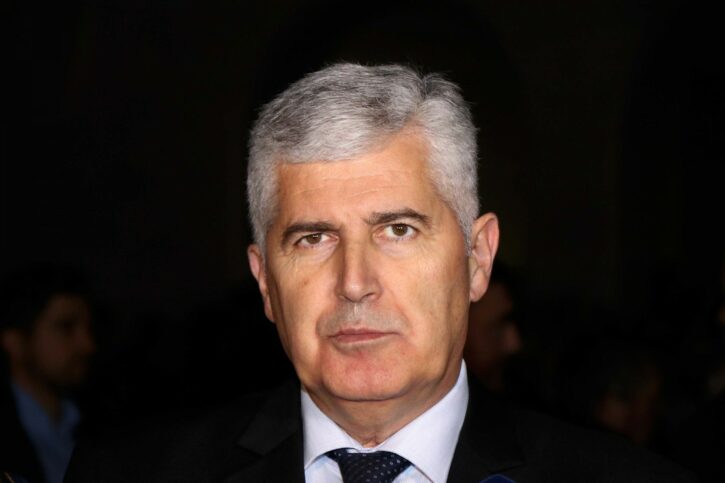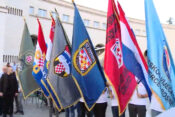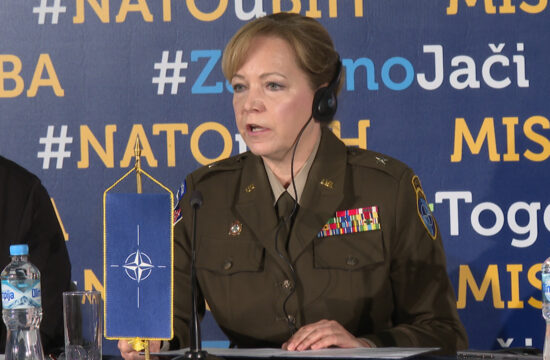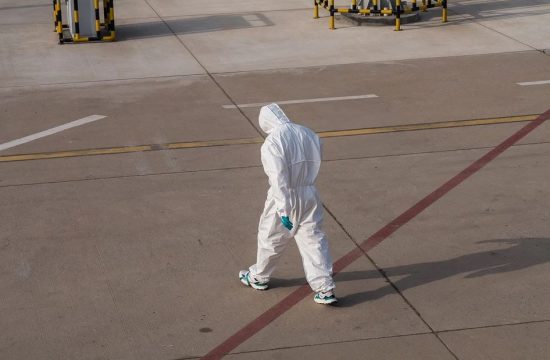
Major Bosnian Croat parties gathered around the Croat National Council and led by the Croat Democratic Union (HDZ BiH) marked the 28th anniversary of the so-called Croat Republic of Herzeg-Bosnia by laying wreaths and lighting candles on Monday evening, in Mostar.
“The Croat Community, or the Croat Republic of Herzeg-Bosnia, was the response of the politically aware Croats to the inability of any Bosnian institution to function at that time, it was the answer aimed at preserving Bosnia, and the Croat people in it. We can testify that Herzeg-Bosnia's institutions in the executive, legislative and political branch, were the basis for the establishment of Bosnia and Herzegovina, and in many ways, we still inherit the elements of Herzeg-Bosnia,” Bosnian Croat leader and leader of the HDZ BiH Dragan Covic said.
Herzeg-Bosnia was first established as a Croat community in the south of Bosnia and Herzegovina in 1991. Its founders were Croat nationalists led by the Croat Democratic Union (HDZ BiH).
Its armed forces, the Croat Defence Council (HVO), were first allied with Bosniak armed forces. But HVO and Bosnia's Army turned against each other after the para-state declared itself a republic on August 28, 1993, and changed its name into the Croatian Republic of Herzeg-Bosnia, with Mostar being its capital.
For its advocators, it was an attempt of Bosnian Croats to defend themselves in the 1990s war, while for its critics, it was a move which was supposed to result in the annexation of that part of Bosnia and Herzegovina to neighbouring Croatia.
Covic noted that there are many others who did not achieve their war-time visions and goals, who are commenting on the Herzeg-Bosnia.
“I will, once again, thank the founding fathers of the Croat Community of Herzeg-Bosnia (HZHB), because if it wasn't for them, I am certain that the Croat people, as a constituent people in this country, would not exist. And yet, 28 years later, we still have legitimacy concerns,” he added.
He recalled that the Bosnian war was horrific, with many casualties and crimes tried at various courts and added that people must remember these days but also turn to the future.
The International Criminal Tribunal for former Yugoslavia (ICTY) convicted in 2013 six high-ranking officials of Herzeg-Bosnia for war crimes against humanity, violation of the laws or customs of war and grave breaches of the Geneva Conventions committed between 1992 and 1994.
All six were found guilty for their participation in a joint criminal enterprise (JCE) with the objective of “removing the Muslim population from the territories on which the Bosnian Croat leadership, acting in concert with the leadership of Croatia, wanted to establish Croat domination”, according to the ICTY.







